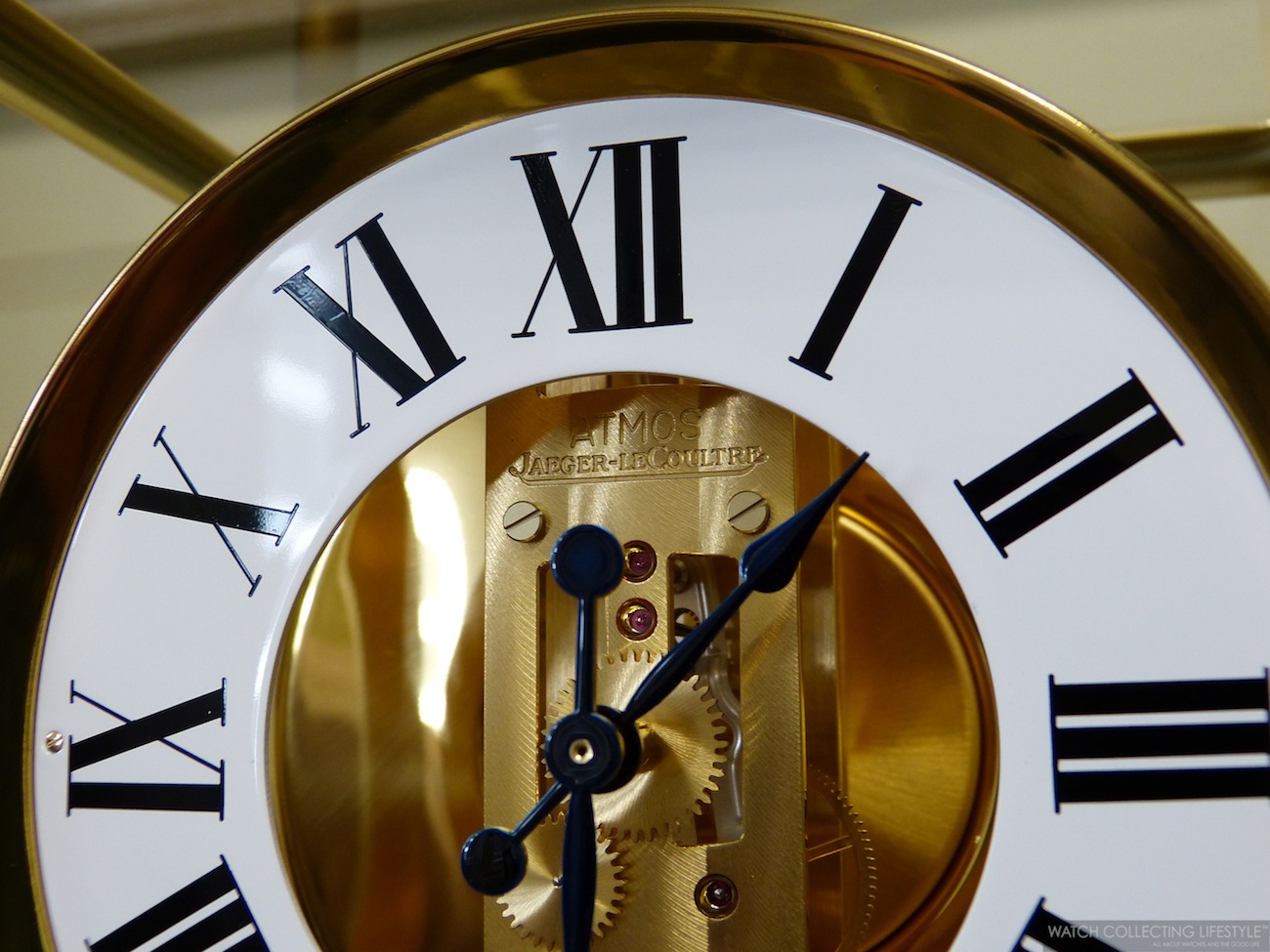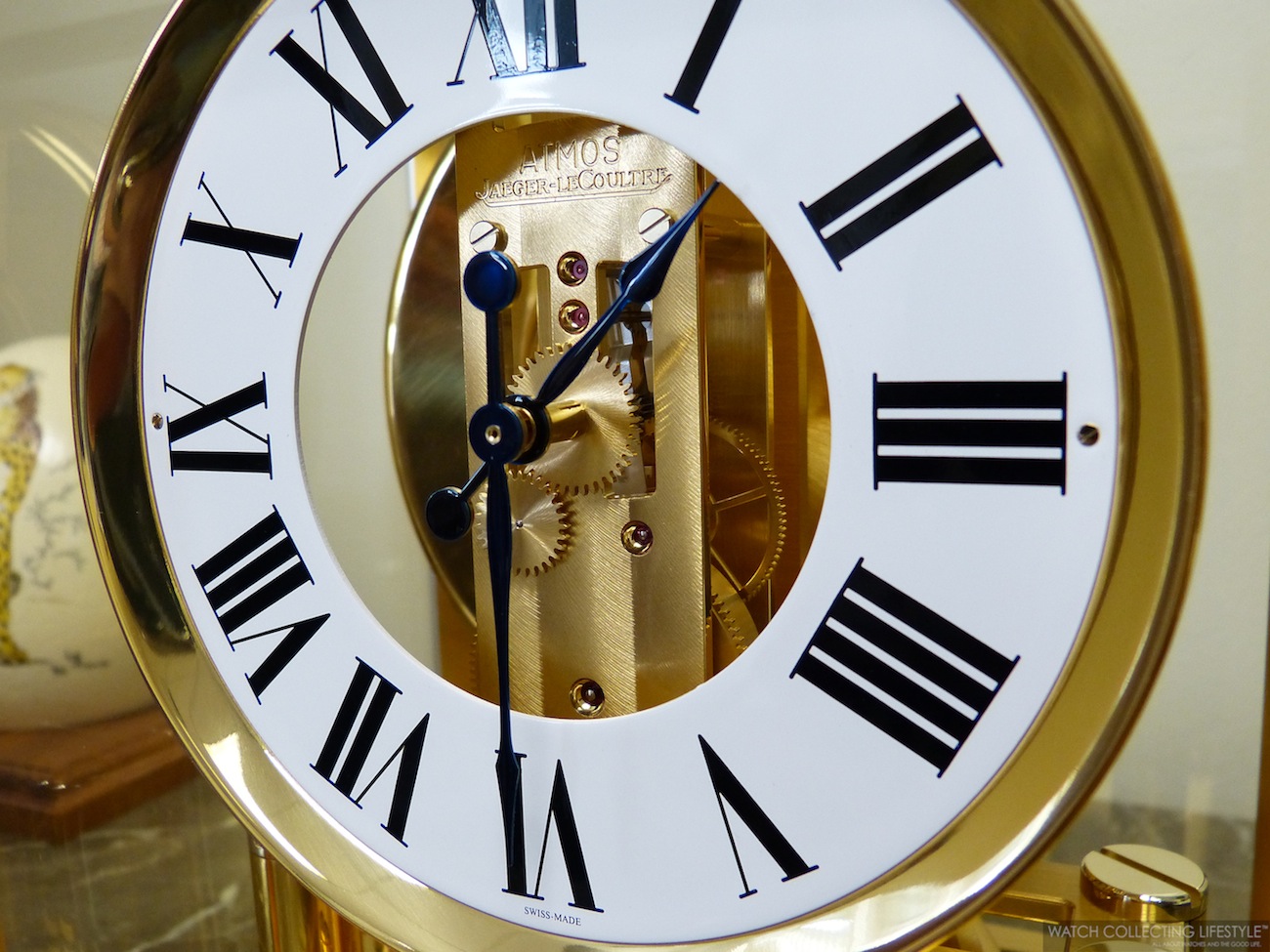The Jaeger-LeCoultre Atmos clock is the only clock in the world that requires no battery, electric current or winding of any kind. The clock is powered solely by changes in the ambient temperature and its movement is virtually perpetual.
Even when Leonardo da Vinci had already demonstrated that perpetual motion was not feasible because of the laws of physics, Neuchâtel engineer Jean-Léon Reutter designed this completely revolutionary clock in 1928 and it only took a few more years of research by Jaeger-LeCoultre to transpose the idea into technical reality and patent it. The principle of the Atmos lies in a hermetically closed capsule with a gaseous mixture which expands when the temperature rises and contracts when it falls. Connected to the driving spring, the capsule swells like the bellows of an accordion and winds the clock constantly. Between 15 and 30 degrees Celsius, a temperature fluctuation of a single degree is enough to ensure an operating autonomy of about two days.
The Atmos clock is designed so that no excessive resistance opposes this minimum power. The Atmos balance wheel oscillates slowly and majestically at only 120 vph — 60 times less quickly than that of a traditional clock, 240 times less quickly than a wristwatch movement and 1,966,000 times less quickly than a quartz watch movement— and it hangs from a steel alloy wire that is as fine as a hair and yet stable and resistant, thereby keeping any loss of energy due to friction to a minimum. The gearing is so perfect that it requires no lubrication and oil would merely clog the mechanism.
To get an idea of the delicacy of this minute energy transfer, consider the fact that 60 million Atmos clocks together would consume no more energy than a weak 15-watt electric light bulb. All the components of the Atmos clock are incredibly precise
and dependable, so that it operates virtually without any wear. It is therefore distinguished by its long service life which —theoretically— can be as long as 600 years. Below we have included a diagram that shows the different components of the clock in order to better understand its mechanism.
A unique gem of horological technology, the Atmos clock is a timekeeper of distinction for Heads of State and numerous sovereigns. For over half a century, the Atmos clock has been the official gift of the Swiss Confederation. Eminent recipients of this clock include John F. Kennedy, Sir Winston Churchill, General Charles de Gaulle and Charlie Chaplin amongst other personalities.
The Jaeger-LeCoultre Atmos Classique clock ref. 5101202 is housed in its gold-plated brass cabinet with a removable front glass door. The dimensions of the clock are 200mm in width, 155mm in depth and 225mm in height and the beating heart is the Jaeger-LeCoultre calibre 560 composed of 207 pieces and 15 jewels. The dial features Roman numerals and blue 'poire' hands. In order to ensure proper operation, the clock is fitted with a built-in leveling indicator at the front and leveling knobs.
Most Atmos clocks will not operate at all unless they have first been properly leveled and always remember that you should never move an Atmos clock when the balance wheel —pendulum— is moving. Once you have leveled the clock properly, then you can adjust the time by delicately advancing the minute hand with your finger but keep in mind that the hour hand should never be touched and do not adjust the time without first making sure that the balance wheel is locked and never move the minute hand in a counterclockwise direction.
In order to prevent damage to the mechanism, Jaeger-LeCoultre has fitted the Atmos clock with a locking lever that is located underneath the dial and right above the balance wheel. The locking lever is in the unlocked position when it's moved all the way to the left and in the locked position all the way to the right. Never, never attempt to move the Atmos clock before locking the balance wheel. If you need to lock the balance wheel in order to move the clock, always wait until it stops moving and then immediately slide the lever. Never stop the balance wheel when it's still rotating and never touch it to make it move or to stop it.
In order to maintain proper regulation, the Atmos clock is fitted with a regulation adjustment lever located on the top of the clock frame right by where the wire is located. This lever can be used to regulate the clock in case it is running fast or slow. Typically, if the clock is running accurately and keeping correct time, the lever should be exactly centered between the plus and minus symbols. If you find it necessary to increase or decrease the speed of the clock, always adjust it by moving the lever one graduation mark at a time and allowing a few days in between the next adjustment in case it is necessary.
The clock includes an additional leveling knob that is located towards the back and this leveling knob can only be accessed through the bottom of the clock. Remember to not tilt the clock unless the balance wheel has been locked with the lever. Also underneath the clock, you will find the shipping screw that needs to be unscrewed before being able to start the balance wheel. The clock will not start running unless you have unscrewed this center screw.
The Atmos clock is a masterpiece of horology and one of the classiest table clocks ever created. If you are ready to add the most elegant decorative touch to the credenza in that corner office you just got a few months ago, look no further. Your peers will be amazed by this fascinating clock and you won't have to worry about replacing a battery for as long as you own it.
Sticker Price $6,900 USD. For more info on Jaeger-LeCoultre click here.

































